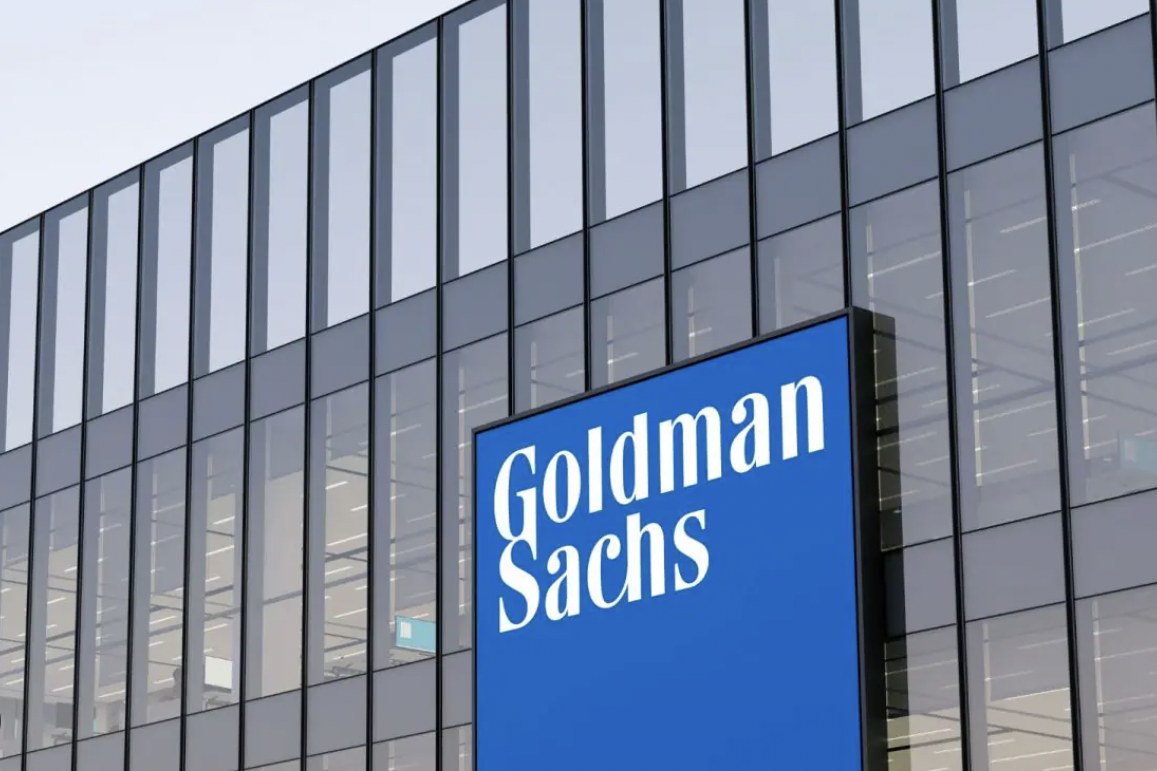In today’s fast-moving business world, getting capital decides whether a business can grow, create new products, or simply stay alive. You might be starting a company or running a large business. Either way, you need to find the right funding partner. This is where the Goldman Sachs Business Loan becomes very important.

Goldman Sachs is famous for institutional finance, private equity, and investment banking. However, they don’t offer small business loans like your local banks do. Instead, Goldman Sachs Business Loan solutions target businesses with high growth potential. They also serve companies that need institutional capital or have strategic financing needs. This post explores how Goldman Sachs helps firms. Additionally, it covers what you should know if you’re considering their business lending services.
Introduction to Goldman Sachs Group, Inc.
Before exploring Goldman Sachs Business Loan solutions, you need to understand the bank itself. This includes its history, size, and the services it offers.
History of Goldman Sachs Group, Inc.
Marcus Goldman founded Goldman Sachs in 1869 as a small commercial paper firm. Over 150 years, the company grew from these simple beginnings into one of the world’s most powerful financial institutions. The firm operates from its headquarters in New York City. Throughout its history, Goldman Sachs has led major economic events. For example, they helped Silicon Valley tech companies rise and guided clients through the 2008 global financial crisis.
The firm built its reputation on capital markets expertise, strategic advice, and global investment banking. Today, Goldman Sachs works in dozens of countries. Additionally, they serve many types of clients, including governments, multinational corporations, asset managers, and wealthy individuals.
Goldman Sachs Group, Inc. General Services
Goldman Sachs organizes its business into several main service areas:
- Investment Banking: They advise on mergers and acquisitions (M&A). They also underwrite debt and equity offerings,
- Asset & Wealth Management: They create investment strategies and manage portfolios for institutions and individuals.
- Platform Solutions: They offer consumer products like the Credit Card and point-of-sale financing through GreenSky. They also provide savings and Personal Loans under Marcus for existing borrowers.
- Global Markets: They trade securities, manage risk, and provide market insights.

The bank’s business lending mainly targets large institutions and investment funds. However, Goldman Sachs also helps small businesses through its 10,000 Small Businesses program. This nationwide initiative provides education and capital access through partnerships with local lenders.
Business Loan from Goldman Sachs
Let’s explore what a Goldman Sachs Business Loan includes, the types they offer, and who can use them.
What is a Goldman Sachs Business Loan?
A Goldman Sachs Business Loan means any financing solution the firm gives to businesses. However, these are not typical loans you’d find at your local bank. Instead of standard small-business loans, Goldman Sachs creates customized, large-scale lending for specific borrowers.
Goldman Sachs serves three main groups:
- Large corporations and real estate developers who need major capital for mergers, acquisitions, or building projects
- Investment funds, such as private equity or hedge funds, that need quick cash or short-term financing
- Small business owners who get loans through community lenders (CDFIs) that partner with Goldman Sachs
A Goldman Sachs business loan can take different forms depending on the borrower. These include leveraged finance, real estate lending, private credit, or fund-level finance. In all cases, they customize these loans strategically and often make them large in scale. Therefore, they design them to meet complex needs rather than provide standard solutions. Small businesses cannot get direct access from Goldman. However, through its 10,000 Small Businesses program, you may qualify through approved partners.

Goldman Sachs creates business loan solutions through three main categories. Each category targets a specific type of borrower. Below, we’ll examine how each category works and what businesses they serve.
Corporate and Institutional Lending
Who it’s for: Large companies, corporations, and real estate developers. Therefore, this category includes highly structured loans for businesses with complex financial needs or strategic deals.
Leveraged Finance
- Goldman Sachs designs these loans for companies involved in mergers, acquisitions (M&A), or leveraged buyouts (LBOs)
- Businesses that already carry moderate-to-high debt levels often use these loans. They need additional capital to expand or buy other companies
- These loans typically have non-investment-grade ratings and carry higher interest rates. However, they allow for large-scale funding
- Goldman Sachs structures these deals based on the company’s cash flow, debt ratios, and future growth potential
Commercial Real Estate (CRE) Lending
- Goldman Sachs provides financing for large property developments. These include office buildings, shopping malls, hotels, and mixed-use projects
- They target experienced real estate developers or real estate investment firms (REITs)
- Companies may use loans for the construction, purchase, or refinancing of commercial properties
- Deals often include structured repayment plans. Additionally, they offer options like interest-only periods during development phases
Goldman Sachs manages these Business Loan types under its Global Banking & Markets division. These loans typically start in the tens or hundreds of millions.
Fund Finance and Private Credit
Who it’s for: Private equity funds, hedge funds, family offices, and mid-sized businesses. So, this category focuses on lending solutions that support investment vehicles and middle-market companies with flexible capital needs.
Fund Finance
- Goldman Sachs makes loans to investment funds, not directly to businesses
- These loans help manage temporary cash flow issues. For example, they bridge the gap between capital calls and actual investor contributions
- Common structures include:
- Subscription (capital call) lines of credit
- NAV-based lending, where the fund’s Net Asset Value secures the loan
- These loans help fund operations efficiently. Moreover, they provide short-term cash or help capitalize on fast-moving opportunities

Private Credit Lending
- Goldman Sachs makes direct loans to privately held, mid-sized businesses. This often happens when traditional bank financing is unavailable
- Companies use these loans for growth capital, acquisitions, operational upgrades, or business transitions
- These loans offer more flexibility in structure and repayment than standard bank loans
- They often include custom agreements and tailored terms suited to the borrower’s cash flow and risk level
Goldman Sachs usually delivers these Business Loan solutions through its Asset & Wealth Management division or its dedicated Private Credit platform.
Community Lending through CDFIs
Who it’s for: Small business owners, especially in underserved or rural communities. However, Goldman Sachs doesn’t lend directly to small businesses. Instead, they support them through trusted Community Development Financial Institutions (CDFIs).
CDFI-Backed Small Loans
- Goldman Sachs provides capital to CDFIs. These are nonprofit lenders focused on community development
- These CDFIs then offer loans to small businesses. Loans typically range from $10,000 to $500,000
- Business owners can use loans for:
- Hiring and payroll
- Equipment and inventory
- Working capital or expansion
- This initiative is part of the “10,000 Small Businesses” program. The program also offers training, mentoring, and networking
CDFI-backed loans help entrepreneurs who may not qualify for traditional business loans. However, they are ready to grow with the right support.
| Type of Loan | Who is it for | What is it used for |
| Leveraged Finance | Big companies | Buying companies, restructuring, M&A deals |
| CRE Lending | Real estate firms | Building/buying hotels, offices, etc. |
| Fund Finance | Investment funds (PE, hedge) | Fund operations, bridge capital |
| Private Credit Lending | Mid-sized businesses | Flexible funding when bank loans don’t fit |
| CDFI-Backed Loans | Small businesses (via CDFIs) | Growth, operations, payroll, equipment |
In short, Goldman Sachs Business Loan is not “one-size-fits-all.” They are designed for very different types of businesses, from global corporations to small shops in rural areas—each served through the right channel.
Why choose a Goldman Sachs Business Loan
Many reasons make Goldman Sachs a top choice for businesses seeking complex or large-scale financing. It’s not just about money. Instead, it’s about experience, strategy, and global reach.
- Strong Reputation: Goldman Sachs has been a financial leader for many years. Fortune 500 companies, global institutions, and top-tier asset managers trust them.
- Custom Solutions: Unlike standard banks, Goldman creates financing structures that match a company’s goals, operations, and long-term strategy.
- Global Scale: The bank has the financial strength and worldwide network to support billion-dollar deals and international expansion.
- Industry Knowledge: Goldman Sachs has deep insight into sectors like technology, healthcare, and real estate. Therefore, they offer more than just capital—they provide strategic guidance.
Your business may need more than a traditional bank loan. This is especially true for acquisitions, growth financing, or specialized lending. In these cases, a Goldman Sachs Business Loan may be the right fit.
However, you might be looking for everyday financing tools. The firm also provides consumer products such as the Credit Card. This card offers flexible credit, spending insights, and zero fees.
Goldman Sachs Business Loan: Eligibility
Goldman Sachs designs Goldman Sachs Business Loans for institutional and strategic financing, not everyday consumers. Therefore, they have specific eligibility requirements depending on the loan type.
Eligibility for Borrowers
Goldman Sachs focuses on well-established organizations and investment entities. Here’s how eligibility works:
- Corporate Borrowers: These must be mid-to-large enterprises. They often have an existing credit history or institutional backing. These borrowers typically want financing for expansion, acquisitions, or restructuring.
- Investment Funds & Sponsors: Hedge funds, private equity firms, and family offices may qualify for fund-level financing or private credit lending.
- Small Business Owners: Goldman Sachs does not lend directly to small businesses. However, entrepreneurs can apply for loans through certified Community Development Financial Institutions (CDFIs) that partner with the bank. This is part of its 10,000 Small Businesses program.

Project or Collateral Requirements
Loan requirements also change depending on the type of financing. You may need:
- Assets Under Management (AUM): Goldman requires this for fund-based borrowing. It shows your fund’s scale.
- Commercial Real Estate (CRE): Goldman needs this for real estate lending. They use it as collateral or an evaluation metric.
- Financial Ratios: Leveraged loans often require proof of strong cash flow and acceptable debt ratios.
- Capital Commitments: Goldman needs these for subscription lines. They reflect investor pledges in private funds.
Goldman Sachs does not offer Home Loans or Mortgage Services to retail customers. If you need these services, consider other banks with a stronger consumer mortgage portfolio.
Goldman Sachs Business Loan: Documents & Procedures
Applying for a Goldman Sachs Business Loan differs greatly from applying at a traditional retail bank. Goldman handles these loans through formal, institutional channels. Additionally, they require detailed paperwork and a more complex process.
Necessary Documents for Business Loan
The required documents depend on who you are. You might be a large business, a fund, or a small business applying through a CDFI partner.
For Corporations and Investment Funds:
- Audited Financial Statements covering the last 3 to 5 years
- Corporate Structure and Ownership Details, showing who runs and owns the company
- Statement of Purpose, explaining how you will use the loan funds
- Legal and Compliance Documents, including registration and licensing
- Asset Verification, if the loan involves collateral like real estate or investments
For Small Businesses (through CDFIs):
- Business Tax Returns for the past 2 to 3 years
- Personal and Business Credit Reports
- A Business Plan or Growth Strategy, detailing your expansion or funding needs
- Proof of Ownership, such as business licenses or registration certificates
Application Process for Business Loan
Here’s how the typical application process works for institutional borrowers:
1. Initial Contact: Businesses connect with Goldman Sachs through an investment banker or relationship manager
2. Due Diligence: Goldman conducts a thorough review of financials, business strategy, and legal standing
3. Loan Structuring: Your company and Goldman’s underwriting team negotiate terms and repayment conditions
4. Syndication (if required): For very large deals, Goldman may share the loan with other institutions
5. Final Approval and Disbursement: You sign legal paperwork, and Goldman releases funds

Small business owners must take a different first step. You need to contact a participating CDFI, not Goldman Sachs directly. These partners handle the application and approval process for community-based lending that Goldman supports.
You might need quicker or simpler financing, like Goldman Sachs Personal Loans or short-term credit. Other lenders or online platforms might offer more accessible options.
Goldman Sachs Business Loan: Terms, Rates, and Fees
Goldman Sachs highly customizes Goldman Sachs Business Loans. Therefore, their terms vary widely depending on the loan type, borrower profile, and loan purpose. There’s no standard package—you’ll receive terms that fit your business structure and financing strategy.
Terms of Service
Goldman Sachs structures each deal individually. However, most Goldman Sachs business loans follow certain general patterns:
- Loan Duration: Most loans range from 1 to 10 years, depending on the type and scope of the financing
- Repayment Structure: You can choose different repayment options. These include interest-only, balloon (bullet) payments, payments spread over time, or even payments linked to revenue performance
- Loan Agreements: These are common in institutional loans. They may include financial conditions such as maintaining a minimum debt service coverage ratio (DSCR) or keeping debt levels within certain limits
These features ensure that each loan meets both your needs and Goldman’s risk management standards.
Interest Rates and Common Fees
Because Goldman Sachs works with many different borrower types, rates and fees vary accordingly. Below is a simplified comparison:
| Loan Type | Estimated APR / Rate | Typical Fees |
| Leveraged Finance | 5% – 12% (floating) | Origination, commitment fees |
| Fund Finance | 4% – 10% | Annual facility fees |
| CRE Lending | 3.5% – 9% | Legal, administrative, appraisal fees |
| CDFI-Backed Small Loans | 6% – 12% | Processing and service charges |
| Private Credit Lending | Varies (often 8% – 16% or above) | Negotiated case-by-case |
Note: Final interest rates depend on market conditions, loan structure, borrower risk profile, and deal complexity.
If you’re seeking simple, fixed-rate financing or loans bundled with everyday banking services, other institutions with traditional Checking or Savings Accounts may offer more standardized options. So, Goldman Sachs is best suited for tailored, strategic lending rather than routine small-business credit.
Goldman Sachs Business Loan: Special Benefits
Goldman Sachs Business Loan doesn’t offer upfront bonuses or promotional rates like some retail lenders. However, they provide strategic, long-term advantages that can be more valuable. This is especially true for businesses looking to scale or operate at an institutional level.
Long-Term Partnership Advantages
Choosing a Goldman Sachs Business Loan means more than just getting a loan. Instead, it’s about building a relationship with a global financial leader. Here are a few key benefits:
- Global Reach: Goldman Sachs can grow with your business as it expands. They offer larger deals, cross-border financing, and multi-stage capital strategies.
- Strategic Advisory: Clients gain access to world-class advisory services for mergers, acquisitions, and IPOs. Most banks don’t provide these resources.
- Integrated Services: Goldman can combine lending with equity underwriting, cash management, or treasury services. This creates a seamless financial strategy.
This makes Goldman Sachs an ideal partner for businesses with complex needs or long-term growth plans.
10,000 Small Businesses Program
Even smaller enterprises can benefit from Goldman’s commitment to community growth. They do this through the 10,000 Small Businesses initiative, which offers:
- Business Education: Goldman provides free courses on topics like financial management, leadership, and operational strategy
- Access to Capital: They give referrals to partner CDFIs who offer loans that Goldman’s funding supports
- Networking Opportunities: You can join a nationwide network of similar entrepreneurs working to grow their companies
This dual approach sets Goldman Sachs Business Loan apart from traditional lenders. They serve both institutional clients and support small businesses.

Entrepreneurs or business owners might be considering long-term capital planning. Goldman’s asset and wealth management services can also provide powerful tools for Investment, retirement, and succession planning.
FAQs about Goldman Sachs Business Loan
Understanding how the Goldman Sachs Business Loan works can help you decide if this type of financing fits your business needs. Below are some of the most common questions asked by potential borrowers.
Does Goldman Sachs offer SBA loans?
- No, Goldman Sachs does not directly offer SBA loans. However, through its partnerships with Community Development Financial Institutions (CDFIs), some borrowers may access SBA-backed financing via those partner organizations.
Can startups apply for business loans directly?
- Typically, no. Goldman Sachs works with established businesses or startups that already have institutional funding. However, early-stage startups without financial backing are better served by local lenders or alternative financing sources.
Are loans available to nonprofit organizations?
- Not in the traditional sense. While Goldman Sachs may work with large institutional nonprofits through structured lending, it does not offer standard nonprofit business loan products.
What is the minimum loan size?
- Most direct loans from Goldman Sachs begin in the tens of millions of dollars. However, small businesses applying through CDFI partners may be eligible for loans starting around $10,000, depending on the program and lender.
Can I apply online?
- No. There is no public online application for business loans. Therefore, large businesses must contact Goldman Sachs directly through a corporate representative. Small businesses should also apply through approved CDFI partners that collaborate with Goldman.
A Goldman Sachs Business Loan is not for every business, but for those who qualify, it offers strategic leverage, tailored structures, and global expertise. Whether you’re financing an acquisition, launching a fund, or expanding operations, Goldman Sachs provides the scale and advisory muscle to back your vision.
